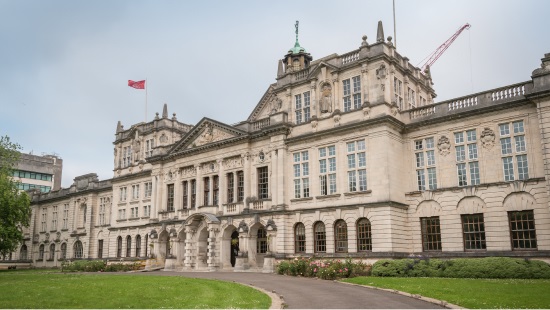News
RSB Fellows elected to Learned Society of Wales
- Details
- 30 May 2025
The Royal Society of Biology offers warm congratulations to four of its Fellows who have recently been elected as Fellows of the Learned Society of Wales (Cymdeithas Ddysgedig Cymru).
As Wales’ National Academy, the Learned Society of Wales harnesses multidisciplinary expertise, experience, and connections to promote and develop Wales’ research and innovation community, and to support the use of excellent and diverse research to solve the challenges faced in Wales and across the world.

The recognised Fellows are:
Dr Amanda Collis FLSW FRSB
Executive Director – Research Strategy and Programmes, UK Research and Innovation – Biotechnology and Biological Sciences Research Council (BBSRC)
Dr Arwyn Edwards FLSW FRSB
Reader in Biosciences, Aberystwyth University and Professor II, University Centre in Svalbard (UNIS), Longyearbyen, Norway
Professor Huw Jones FLSW FRSB
Professor of Translational Genomics for Plant Breeding, Aberystwyth University
Dr Lyn Jones FLSW FRSB
Principal Investigator, Dana-Farber Cancer Institute/Harvard Medical School, Boston USA
Dr Amanda Collis’ work focuses on research strategy, policy and funding. She is devoted to advancing ‘discovery bioscience’, interdisciplinary research, and strategic programmes across a broad range of topics, from agriculture to zoonosis. She has a passion for international partnership, working across diverse cultures to deliver opportunities for UK academics to collaborate with peers around the world. Her leadership roles in UK Research and Innovation (UKRI), the European Molecular Biology Laboratory, and the Organisation for Economic Co-operation and Development (OECD) make her an influential figure in research and innovation.
Dr Edwards is a leading environmental microbiologist who works on the diversity, geographic distribution, and impact of microorganisms on evolutionary timescales. His work was the first to use genomic approaches to explore little-studied and potentially endangered glacier ecosystems. A native of Ceredigion, he has made over 40 research expeditions to the Polar Regions. He also contributed significantly to the COVID-19 emergency response both locally and for Welsh Government.
Professor Huw Jones develops and uses novel in-vitro tissue culture methodologies to study gene function and reverse genetics in cereals to direct breeding. This work leads to understanding the genetic basis of quality traits in grasses. Professor Jones also works on the regulatory aspects of biotechnology and food safety. He has been a member of the European Food Safety Authority’s panel on genetically modified organisms for nine years (the last three as vice-chair), and is a current member of the UK Food Safety Authority’s advisory committee on novel foods and processes, and the Department for Environment, Food & Rural Affairs expert committees, including sub-groups that steered the writing of the UK Genetic Technologies Bill which received royal assent in March 2023.
Dr Lyn Jones has over 25 years’ experience as a medicinal chemist and chemical biologist. He has worked in both academia and industry, where he has made significant contributions to drug discovery. His research identifies the elements of proteins that can be targeted by drugs, and the use of new therapies, particularly drugs that use small molecules to target proteins. His highly cited and impactful research has been recognised through international awards, invited lectures, and elected Fellowships of scientific societies.
As a membership organisation, the RSB relies on the support of its Fellows and members to influence policy, advance education and professional development, and encourage public interest in the life sciences.
If you would like to know more about becoming a Fellow, please email: membership@rsb.org.uk

